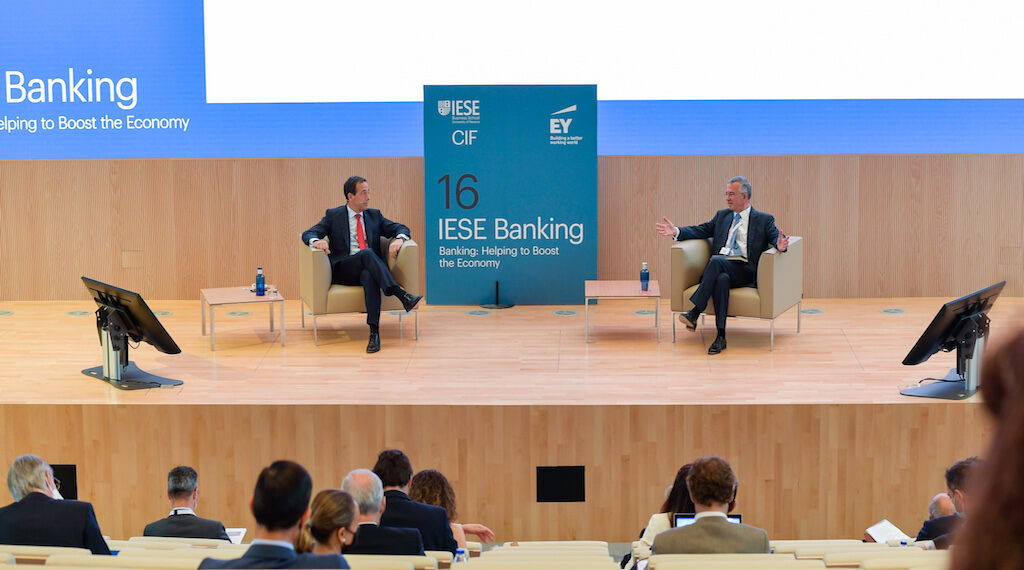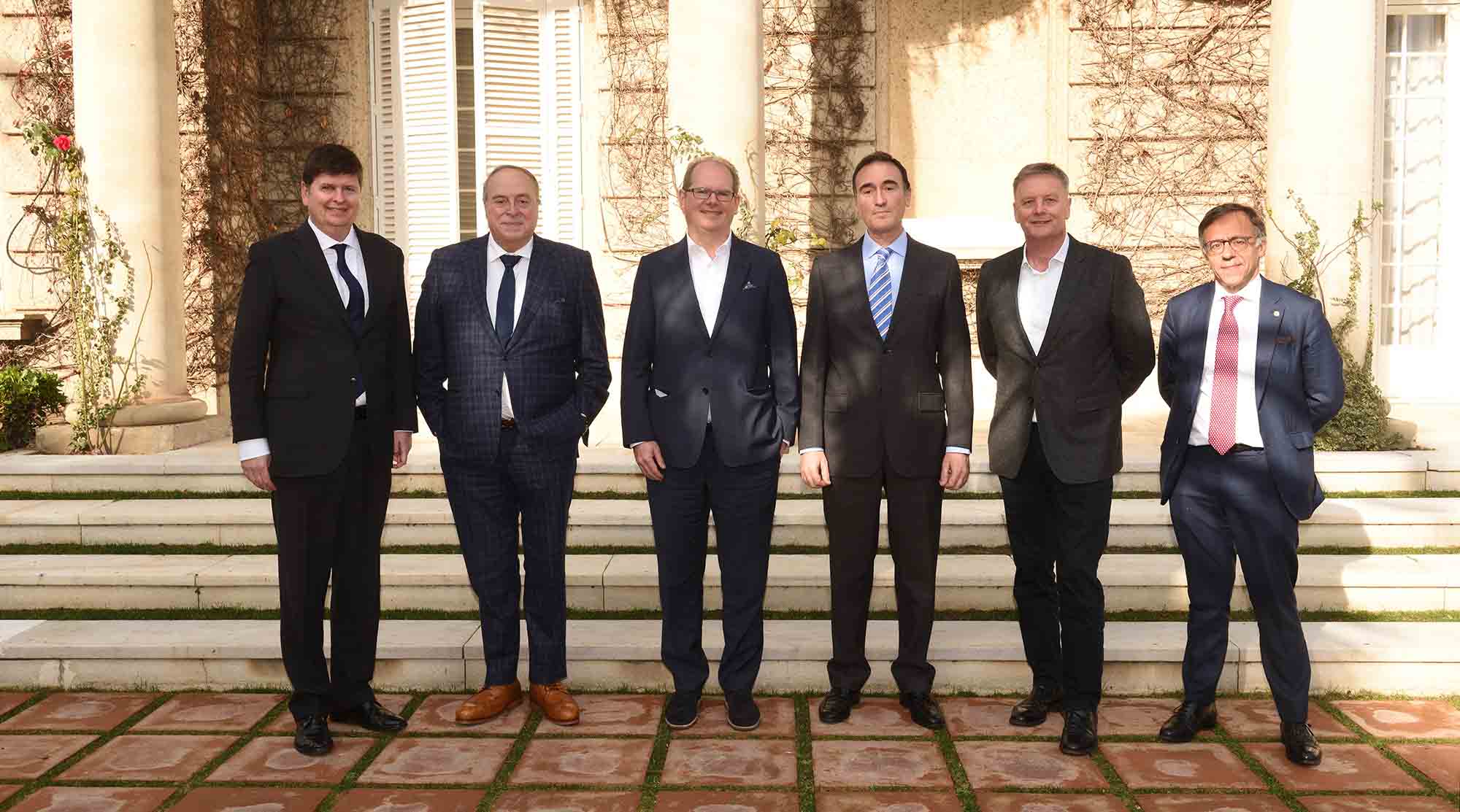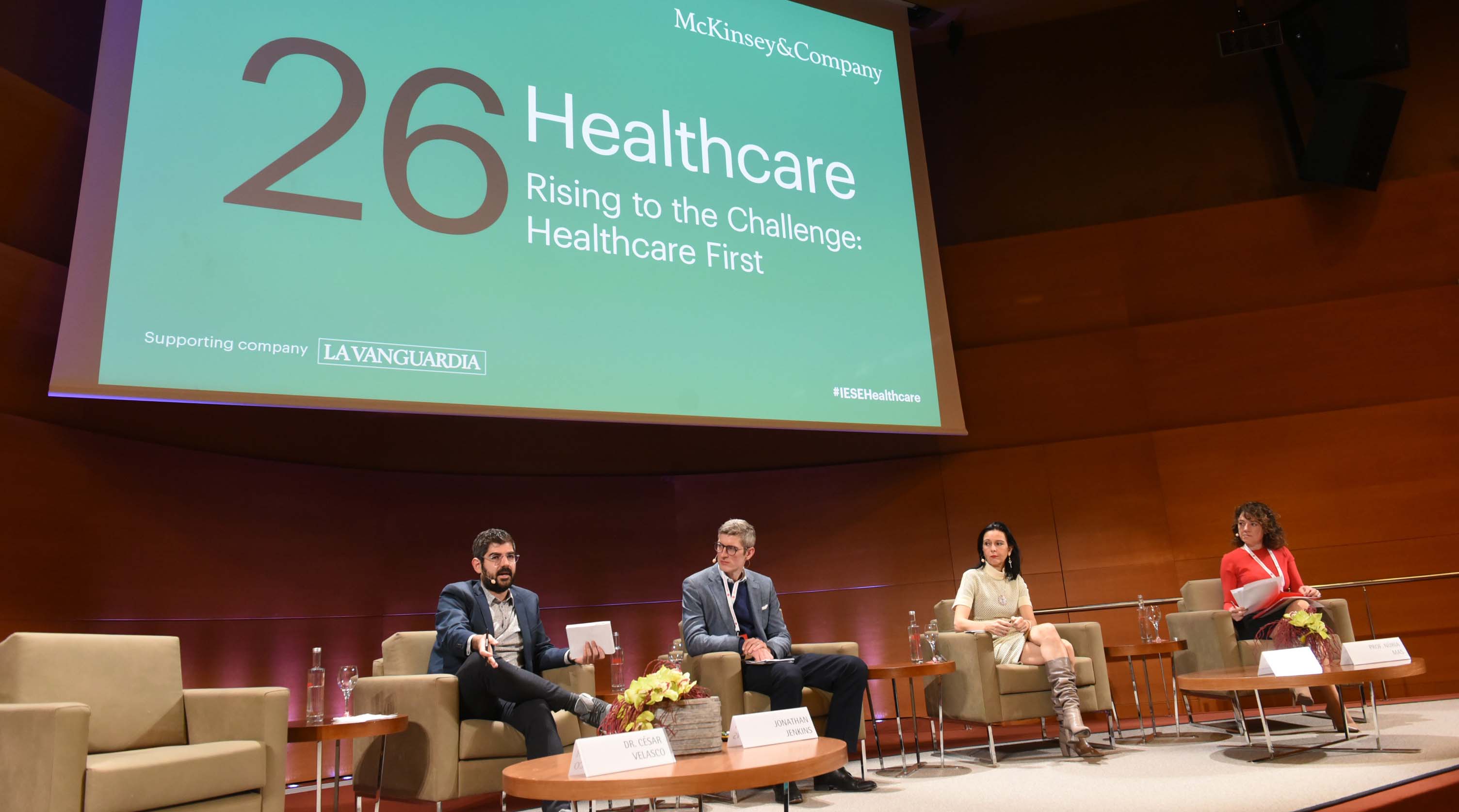Stories
Consumers Want Convenient, Healthy, Low-Priced Food
21 st Food and Beverage Industry Meeting looks at demanding sector
June 9, 2017
Food and drinks that are immediately available, anywhere and everywhere. At a low price. Of great quality. Healthy. And varied. But above all, convenient.
Such are the demands on the industry, in a context of digitization, omni-channeling, and shopping experiences enriched through the use of new applications and services available to the customer 24/7.
These were the starting points of the 21st Food and Beverage Industry Meeting, directed by IESE Prof. Jaume Llopis together with Fernando Pasamón, a partner at Deloitte, and held recently on the Barcelona campus.
Increasingly Demanding Customers
“It’s difficult to do everything well,” says Ricardo Currás, CEO of Día supermarket chain.“Clients want everything.And this is a business equation that’s difficult to manage.” Despite this, Día will keep trying: “The company’s number-one priority is to make sure that the client is truly at the center of all our decisions.”
Proof of this commitment, Currás said, is that the company has even modified its employee compensation system, tying a small part of all salaries to customer satisfaction levels and loyalty.
On other issues, Día’s differentiating strategy continues to be focused on low prices – “we do everything possible to have the lowest prices in the market” – as well as close location and convenience. “These are highly valued qualities,” the Día CEO said, and they are qualities that older people as well as millennials seek.
Online Food Market
At a time when digitization is sweeping through all industries, Nestlé is centering its efforts on maintaining constant interaction with consumers, through the use of digital tools (webs, blogs, social networks and mobile apps). These enrich Nestlé’s offerings with services that add value to products or with personalized shopping experiences.
“Nestlé’s digital ambitions are to become the industry leader in taking advantage of digital technology and e-commerce to satisfy the consumer,” said Filippo Catalano, Chief Digital Officer of Nestlé.
Innovation and Differentiation
Casa Ametller is another company hoping to become a reference point in the sector, in this case in healthy and local eating. The fresh food retailer has more than 70 stores across Catalunya and is in the middle of an expansion plan, having recently acquired restaurant chain Green Vita. While Casa Ametller is already a producer and manufacturer, Green Vita is its first incursion into the restaurant sector, and part of a 360-degree strategy based on healthy eating and offering delicious, high-quality products. The origins of Casa Ametller date back to 1830, across eight generations of local producers.
“We want to be protagonists of a healthy revolution, which we believe is here to stay, and to be present in all the spheres and channels in which food is present,” said Josep Ametller, founder and CEO of Casa Ametller. In addition to its own shops, this includes the sale of products to other retailers, restaurants, home-delivery services and even school food services.
Defining a Winning Strategy
For Ignacio González, CEO of Nueva Pescanova, defining a winning and meaningful strategy is as easy – and as complicated – as responding honestly to two key questions: “What do I know how to do well?” and “What does the consumer want?” In the intersection of those is the optimal strategy on what to sell, where to sell it and who to sell it to.
For this reason, Nueva Pescanova now focuses on reinforcing its differentiating elements that have guaranteed its performance over more than half a century and on which it projects its future: vertical integration and branding, and constantly innovating to win over the consumer with new formats and presentations in its leading products.
“We want to convert Nueva Pescanova into a company that fishes everything it sells,” González said. In this case, that means hake and langostino for its customers in Spain, Portugal, Italy, France and the U.S., countries that account for 85% of Nueva Pescanova’s sales.
Global Perspective
And to know exactly what, where and to whom to sell, participants were given copies of the 5th edition of the Vademecum on Food and Beverage Markets 2017, prepared by IESE and Deloitte.
The vademecum is an exhaustive report on business opportunities and trends in the sector, directed by Prof. Llopis, and compiled by lead researcher Júlia Gifra in cooperation with Deloitte, and with information from local experts who analyzed the socioeconomic climate of 25 global cities.


